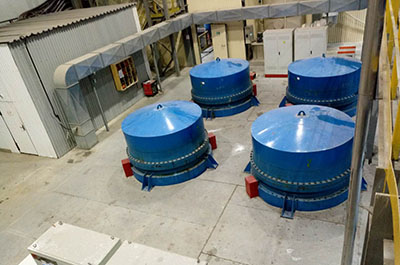Advantages and disadvantages of resin in pulp process
2020-10-26 15:20Introduction:Advantages and disadvantages of resin in pulpprocess Experimental research and production practice show that the resinin pulpprocesshas the following advantages: 1.The adsorption capacity, adsorption rate and mechanical strength of the exc
Experimental research and production practice show that the resin in pulp process has the following advantages:
1. The adsorption capacity, adsorption rate and mechanical strength of the exchange resin were all higher than that of activated carbon.Therefore, under the same capacity, the scale of the resin slurry gold extraction plant is smaller than that of the carbon slurry gold extraction plant.

3. In order to remove the adsorbed organics, activated carbon must be thermally regenerated periodically before it can be returned to use, while the exchange resin desorption can be directly returned to the adsorption operation after transformation.
4. Less adsorption of calcium carbonate by the exchange resin can save the pickling operation, while more calcium carbonate adsorbed by activated carbon must be regenerated by pickling.
5. Organics (such as flotation agents, oil, lubricating oil, solvent, etc.) will not poison the exchange resin, but they will strongly reduce the adsorption performance of activated carbon.
However, the process of resin in pulp process also has some disadvantages. For example, the exchange resin has poor selectivity in absorbing gold and silver from cyanide slurry, and a large number of base metal cyanide complexes are absorbed, while activated carbon has a higher selectivity in absorbing gold.Secondly, the density of the exchange resin is smaller than that of activated carbon, and the exchange resin will float on the slurry surface, resulting in poor contact.
Due to the characteristics of fast reaction speed, high saturation capacity, simple operation and low cost of leaching, this process is especially suitable for small gold benefication plant.

